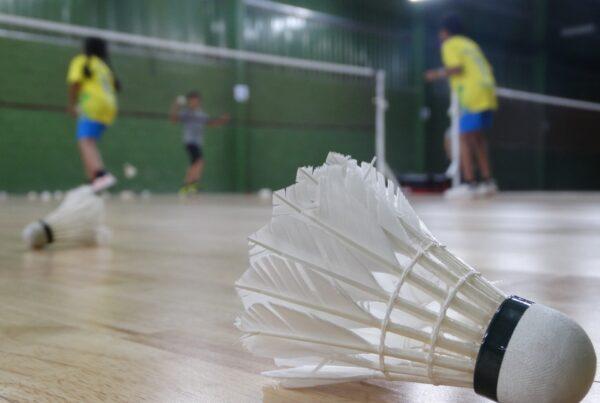The ability to listen is a valuable skill. In the academic world, students need to become better listeners to improve their performance in school. Listening is an important part of learning because it helps students to understand and retain information. By improving their listening skills, students will be better able to understand the material presented to them in class and process it more effectively. In other words, it will enable them to respond rather than react. Unfortunately, we don’t usually give it the attention it deserves. We think of it as something that just happens in the background, but the truth is that it’s a vital skill. Listening is more than just hearing the words someone speaks; it’s an incredibly important tool for improving performance. So, let’s explore how to strengthen your listening power and become a high performer.
First, it’s important for students to be prepared to listen. This means coming to class with all course materials and making sure they have adequate knowledge of the topic being discussed. They should also take notes so they can review them later.
Second, students should stay focused during lectures. This means keeping their attention on the speaker, avoiding distractions, and engaging with the material. They can do this by asking questions, taking notes, or participating in class discussions.
Lastly, it’s important for students to practice active listening. Active listening involves really understanding what is being said by critically thinking about the material and asking questions when appropriate. This helps students to retain the information being presented and improve their performance in class.
An effective listener filters words and interprets their meaning as accurately as possible. When someone speaks, you take in the message and interpret it according to your own biases, experiences, and understanding. If a student really wants to excel in his or her performance, then listening is crucial.
अच्छाधीर्याद्यदाच्छेल्यो गुरुरेव च धातवः।
पाणिपादाद्यनुप्राप्तः शिष्यः शीलेन बध्यते॥
A student, if obedient and disciplined, should respect the teacher like a god. When a student follows the guidance with utmost humility, they attain knowledge and wisdom.
This shloka highlights the need for students to be obedient and humble towards their teacher, treating them with reverence due to a deity. Approaching the teacher with hands and feet symbolizes humility, and this act binds the student to the discipline imparted by the teacher. In essence, the verse underscores the importance of respect, humility, and discipline in the student-teacher dynamic.

Listening Tips
In order to become a better listener, students need to pay attention to the following tips:
- Prioritize: Prioritizing listening is key. Students need to make an effort to focus on the speaker instead of daydreaming or engaging in other activities.
- Ask Questions: If a student does not understand something, it’s important for them to ask questions. Many instructors will allow for questions at any point during the lecture, and this will help students to grasp the material better.
- Take Notes: Taking notes is a great way to ensure that students are focusing on the lecture and processing the material being presented. By taking notes, they can review the material later on and remember what was discussed.
- Avoid Distractions: Distractions are inevitable, but students should try to avoid them as much as possible. This means avoiding the use of cell phones, talking to other students, or engaging in unrelated activities during class.
- Take Breaks: Listening is mentally exhausting, so it’s important to take breaks during long lectures. This will help students to refresh their minds and focus on the material being discussed.
Listening Skills
Listening skills are important because they help us become better decision-makers, better negotiators, and better problem solvers. Furthermore, effective listeners can quickly identify and address problems before they arise. Many students fail to recognize how much power listening gives them, often forgetting that listening improves performance and communication.
Listening allows us to identify opportunities, remain on top of changes, and give us an outside-in perspective on our projects and ideas. Listening involves far more than just hearing with our ears; it extends to hearing with our eyes and internalizing the words we hear in our minds. To achieve this, a student must develop strong listening skills that go beyond simply hearing words. We at Vishwa Vidyapeeth are the top schools in Bangalore that teach listening skills to our students with the help of our experienced teachers and dedicated staff
Listening Practice
In order to become a better listener, it’s important for students to practice their listening skills. This can be done in a number of ways.
First, students can listen to podcasts or audio recordings related to their interests or course material. By doing this, they can practice understanding complicated concepts through listening and improve their comprehension of unfamiliar subjects.
Second, students can engage in group discussions to improve their active listening skills. This will help them become better at understanding another person’s point of view and responding appropriately.
Lastly, students can practice their listening skills by engaging in activities like summarizing or note-taking. By summarizing a lecture or taking notes, they can practice their listening skills while retaining important information.
Active Listening
One of the most important aspects of effective listening is being an active listener. This means actively engaging with the speakers, trying to make sense of the information they are presenting, and responding appropriately. Active listening is a way of being present and attentive, while also being ready to ask pertinent questions and show genuine interest in the topic at hand.
Active listening can help a student understand more fully what is being said and helps them gain a deeper understanding of the content. Asking questions is essential when it comes to active listening, as they help a student make sure they truly understand.
It is also important to consider the speaker’s body language, as this may provide clues as to the meaning behind their words. By actively listening, a student may hear the underlying message, permitting them to make better decisions and boost their overall performance.
Being an effective listener is about being aware, open-minded, and receptive to others’ words and feelings. It takes practice, patience, and conscious effort. With this skill, students can unlock the true potential that will help them reach their goals. So, if you want to improve your performance and become a better student, developing your listening skills should be your priority.
Overall, improving listening skills can be a great way to boost student performance. By utilizing a listening strategy, improving their listening skills, and practicing active listening in a variety of ways, hence it is important to be an effective listener in order to succeed in the academic world. Come join ICSE school in Yelahanka Bangalore and be a part of an amazing learning experience.




